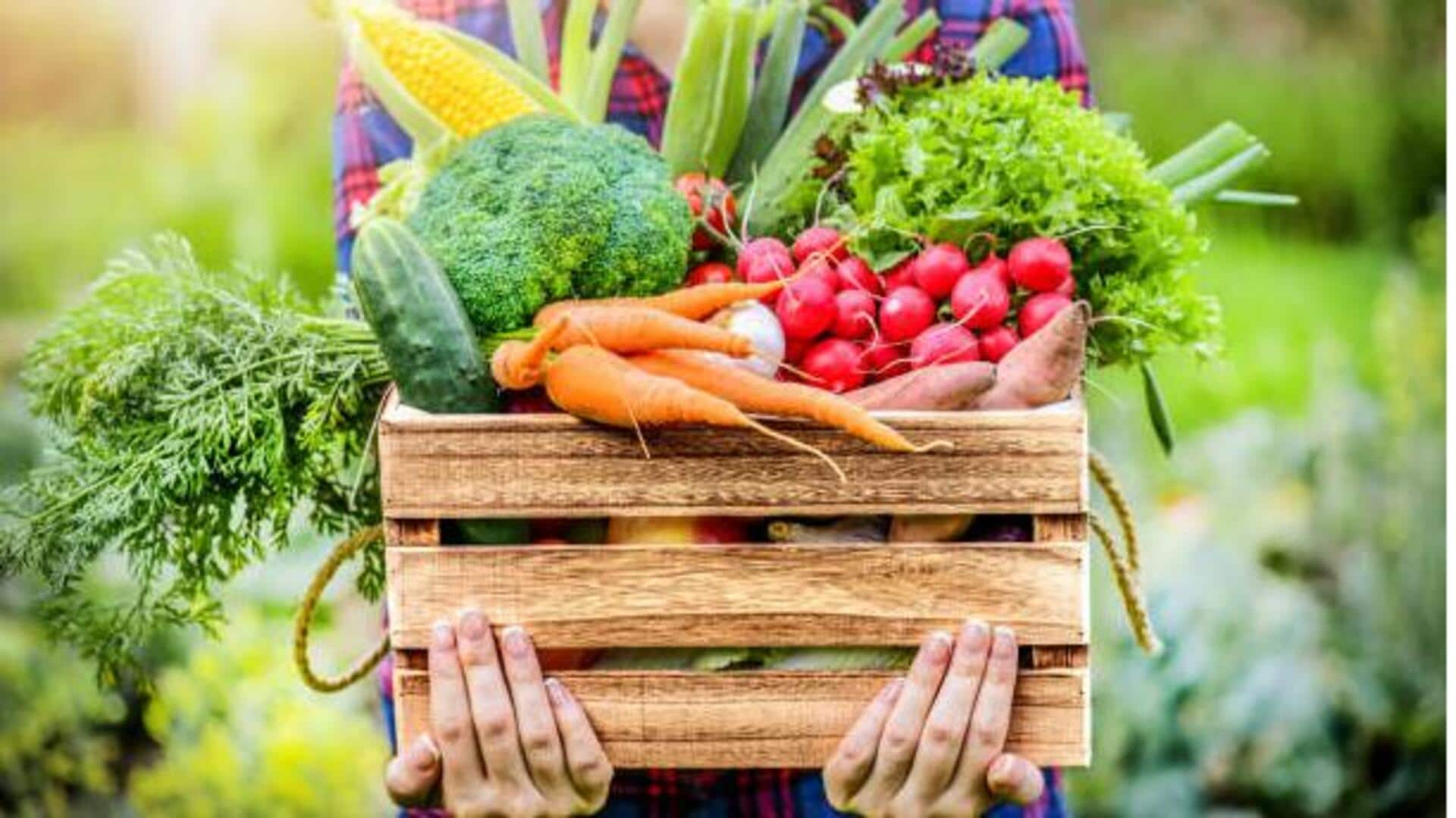
Organic vegetables: Separating fact from fiction
What's the story
While organic vegetables have become a go-to for health-conscious people, there are many myths that still exist about their pros and cons. Knowing these misconceptions can help you make informed decisions. This article attempts to debunk common myths about organic vegetables, based on facts and not assumptions. Let's take a look.
Pesticide use
Myth: Organic means pesticide-free
A common misconception is that organic vegetables are completely free of pesticides. However, organic farming permits the use of certain natural pesticides, approved by regulatory bodies. These substances are usually derived from natural sources and are deemed less harmful than synthetic alternatives. However, they are still used to combat pests and diseases in crops. Knowing this distinction helps consumers appreciate the nuances of organic farming practices.
Nutritional value
Myth: Organic vegetables are always healthier
Many think organic vegetables automatically provide more nutrition than regular ones. Although a few studies indicate slight nutrient differences, like more antioxidants in certain organic produce, the nutritional differences are usually negligible. Soil quality, crop variety, and freshness determine nutrient levels in both organic and regular vegetables.
Environmental impact
Myth: Organic farming is more environmentally friendly
The idea that organic farming is always more eco-friendly isn't entirely true. It steers clear of synthetic chemicals and encourages biodiversity, but often requires more land for equivalent yields compared to conventional methods. This extra land usage can contribute to deforestation or habitat loss if not handled sustainably. Assessing environmental impact means looking at different aspects, not just farming practices.
Cost vs Quality
Myth: Higher cost equals better quality
Organic vegetables tend to be pricier because they require more labor to farm and cost to certify. But, it doesn't mean that a higher price means better quality or taste for every consumer's palate. Taste-wise, the quality can vary by individual taste preferences and what vegetable you're talking about, rather than if they're grown organically.
Labeling confusion
Myth: All natural labels mean organic
Consumers might confuse "natural" labels with "organic," thinking they mean the same when buying veggies. But "natural" isn't a regulated term like "organic." Organic has to meet certain standards set by certifying bodies concerning pesticide use, soil management, etc., in production processes to be labeled on packaging materials at stores nationwide today. Across markets globally, this is now increasingly so over time.